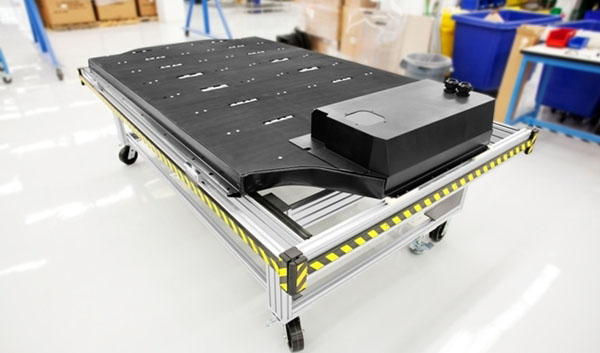Nowadays, the price of electric vehicles is much more expensive than that of ordinary fuel vehicles. Many people think that electric vehicles will never enter the vanguard market when they enter the consumer market of the Volkswagen. Although fuel and maintenance costs can be saved, the higher initial purchase prices will still Scared many consumers. Earth people know that electric cars are expensive batteries, but it is gratifying that a new foreign study said that the cost of lithium-ion batteries is falling all the way, and faster than previously estimated.
According to The Carbon Brief, as early as 2013, the International Energy Agency (IEA) had predicted that by 2020, the cost of electric vehicle batteries will drop to 300 US dollars/kWh. However, researchers at Nature Climate Change believe that the electric vehicle industry may have reached this goal in advance. From 2007 to 2014, the average cost of the entire industry fell from US$1,000/kWh to US$410/kWh, on average. Declined by 14%. Some leading companies, such as Nissan and Tesla, have already crossed the IEA-predicted $300/kWh barrier. Battery costs are likely to have been cheaper since last year, prices may be two to four times lower than those of many recent peers, and annual declines It is 8%.
The results of this study are based on 85 cost estimates from peer review academic journals, institutional estimates, consulting and industry reports, media reports, battery manufacturers, and automakers. Because manufacturers are reluctant to disclose their true costs to the public, the aforementioned data is not complete data.

Battery Cost Estimates and Expectations
In 2014, the annual growth rate of the EU electric vehicle market reached 37%, but the overall automotive market share was less than 1%. The lack of high prices, short mileage and lack of charging infrastructure were the reasons for the failure of electric vehicles to achieve major breakthroughs. Researchers said that with the continuous increase in electric vehicles, consumer preferences gradually strengthened, battery costs will have further room for decline.
The $100/kWh is often seen as the benchmark for the price competition of electric vehicles with ordinary fuel vehicles. In order to pursue cost reductions, various researches have been conducted to replace the lithium ion chemical composition. For example, the Volkswagen Group is deliberating on the research and development of electric vehicle solid-state batteries.
Researchers expect that in 2017-18, battery costs will drop to $230/kWh. In the United States, for example, the current price of oil is very low, and it is expected that the battery cost will be less than US$250/kWh, and the price of electric vehicles will be more competitive. If the cost of the battery further falls below 150 U.S./kWh, the electric vehicle market will undergo volume changes, and the potential for vehicle technology will change accordingly.
To achieve the above-mentioned level, even under the current momentum, even if battery cell chemistry technology has achieved a lot of progress, the drastic drop in battery cost price cannot occur overnight. The researchers believe that these new studies are still far away, and only the expansion of the market size is more likely to bring about a reduction in costs.
Tesla Motors is verifying the researchers' assertion that when the Gigafactory Super Battery Plant in Nevada is launched in 2017, it will have a large enough market size to achieve a low civilian price of $35,000 for the Model 3 electric car. This means that the battery cost will be reduced by 30%. On the other hand, Renault-Nissan also plans to achieve a battery capacity of 1.5 million electric vehicles in 2016.

Tesla Model S battery
The researchers said that overall, in the near future, even if there is no major breakthrough in technology, economies of scale may also push battery costs down to $200/kWh. If the forecast of this research is correct, then the development scale of the electric vehicle market may exceed expectations, which is a good thing.
In addition, according to different battery cost estimates published in the Washington Post, the current average price of lithium-ion batteries is US$496/kWh, which shows that the cost reduction has reached 60% since 2010. At this rate, the battery price is expected to drop to $175/kWh within five years.
In the long run, automakers must produce electric vehicles on the basis of profitability, and then increase sales efforts to achieve economies of scale. Nissan Motor Co., Ltd. set a huge sales target after the first-generation Leaf wind electric vehicle was listed. Today, it is indeed said that the Leaf wind turbine is the world’s highest-selling electric vehicle so far this year, and it will break the 200,000 mark this year. The next generation of Bladewind is expected to provide 120-150 miles (193-240 kilometers), or even more cruising range, apparently it will attract more consumers, Nissan will become more and more profitable as a car company.
Heat Transfer Printing Paper,Cheap Sublimation Paper,Sustainable Sublimation Paper,Custom Transfer Printing Paper
SHAOXING HONEST IMP&EXP.CO.,LTD , https://www.transfer-printed.com